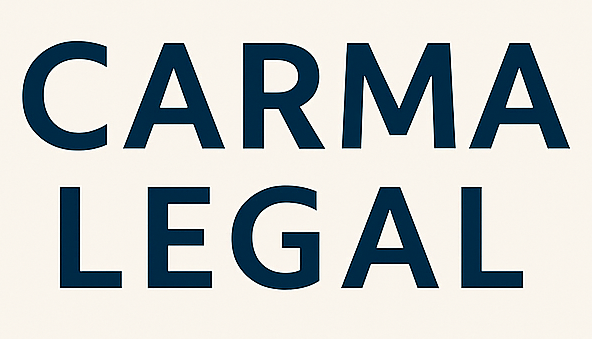When you’re planning your estate, creating an irrevocable trust can offer powerful benefits—from reducing estate taxes to shielding assets from creditors. To navigate complex rules and ensure your trust meets state requirements, you may choose to consult an irrevocable trust attorney. With expert guidance, you gain the peace of mind that your documents are enforceable, your family’s interests are protected, and your legacy is preserved.
understanding irrevocable trusts
defining an irrevocable trust
An irrevocable trust is a legal arrangement in which you transfer assets out of your control into a trust managed by a trustee. Once established, the trust terms generally cannot be changed without beneficiary consent or court approval. As a result, the assets you place in the trust are usually excluded from your taxable estate and protected from certain creditors.
how an irrevocable trust works
When you fund an irrevocable trust, you rename the trust as the owner of designated property—such as real estate, investment accounts, life insurance policies, or business interests. A trustee you appoint administers distributions according to the trust’s instructions. Because you give up ownership and direct control, the assets are often shielded from estate taxes and lawsuits.
common irrevocable trust types
Various irrevocable trusts serve different planning goals. Common structures include:
- Charitable remainder trust, which provides lifetime income before passing assets to a charity
- Irrevocable life insurance trust (ILIT), removing life insurance proceeds from your estate
- Grantor retained annuity trust (GRAT), shifting future growth to beneficiaries
- Qualified personal residence trust (QPRT), retaining use of your home while reducing estate value
- Spendthrift trust, protecting beneficiaries from creditor claims
- Special needs trust, preserving government benefits for a loved one [1]
- Medicaid asset protection trust, safeguarding assets for long-term care planning
comparing trust structures
revocable vs irrevocable trust
A key decision in estate planning is choosing between a revocable trust and an irrevocable trust. While a revocable trust lets you maintain control and modify terms during your lifetime, it does not offer the same tax advantages or asset protection.
trust structure comparison
| Feature | Revocable trust | Irrevocable trust |
|---|---|---|
| Control | Grantor retains full control and can amend | Grantor relinquishes ownership; limited modifications |
| Asset protection | Exposed to creditors and lawsuits | Shielded from most creditor claims |
| Estate tax treatment | Assets included in taxable estate | Assets usually excluded from grantor’s estate |
| Probate avoidance | Avoids probate for trust assets | Bypasses probate for assets transferred to the trust |
| Modification flexibility | Easily modified or revoked | Difficult to change without legal proceedings or decanting |
| Typical use cases | Privacy and probate avoidance | Tax planning, asset protection, benefit eligibility |
| Source: MetLife [2] |
probate and tax differences
Because assets in an irrevocable trust are no longer owned by you, they generally do not pass through probate and can reduce estate taxes. In contrast, assets in a revocable trust remain part of your taxable estate, potentially subjecting them to higher federal or state estate taxes.
funding and administration
Both trust types require proper funding—transferring titles, revising beneficiary designations, and updating deeds. An attorney helps ensure assets are retitled and the trust is fully operational to meet your planning goals.
exploring trust advantages
reducing estate taxes
One of the primary goals of an irrevocable trust is to lower your estate’s taxable value. By moving assets out of your estate, you may benefit from the federal estate tax exemption and any applicable state exemptions [3]. This strategy can lead to significant savings for high-net-worth individuals.
protecting assets from creditors
Assets held in an irrevocable trust are generally beyond the reach of personal creditors. This protection is especially valuable if you face professional liability—common for doctors, attorneys, or business owners—and want to safeguard wealth for your heirs.
qualifying for government benefits
A properly structured Medicaid asset protection trust can remove assets from your countable resources for Medicaid eligibility after a look-back period. This planning technique helps preserve your savings while ensuring access to long-term care.
supporting special needs
If you care for a loved one who receives Supplemental Security Income or Medicaid, a special needs trust lets you provide supplemental funds without jeopardizing their benefits. Each distribution supplements their care, offering lasting support and security.
identifying when to seek counsel
complex asset portfolios
If your estate includes diverse holdings—such as rental properties, closely held businesses, retirement accounts, or foreign investments—you need legal expertise to structure an irrevocable trust that accommodates each asset type.
high estate tax liability
When the projected value of your estate exceeds federal or state estate tax thresholds, professional guidance is essential. An attorney experienced in tax-efficient trusts can model outcomes and help you maximize available exemptions.
Medicaid or long-term care planning
Navigating Medicaid rules and look-back periods is complex. To prevent disqualification or penalties, you should work with counsel familiar with Medicaid asset protection trusts and state regulations.
business succession strategies
Entrepreneurs often use irrevocable trusts to transition ownership interests in a family business. A trust can provide liquidity for heirs, streamline succession, and minimize estate tax impact.
charitable giving strategies
Want to support philanthropic goals while retaining income? A charitable remainder trust or charitable lead trust may make sense. An attorney guides you through tax codes, helping you create a giving plan that meets IRS requirements.
advanced trust provisions
When you require specialized trust features—such as decanting provisions, trust protectors, or dynasty trust language—legal counsel ensures your documents include compliant and enforceable terms.
choosing your trust attorney
attorney qualifications
Look for a lawyer licensed in your state with a focus on estate planning. Membership in professional organizations—such as the American College of Trust and Estate Counsel (ACTEC)—signals advanced expertise.
relevant experience
Ask about an attorney’s track record with irrevocable trusts. An individual who regularly crafts Medicaid asset protection strategies or charitable trusts brings practical insights that streamline the process.
evaluating service offerings
Some firms provide full-service planning, including drafting documents, funding the trust, and ongoing administration. Others offer unbundled services for specific tasks. Compare fee structures—hourly rates, flat fees, or retainers—to find a model that fits your budget.
client testimonials and referrals
Word-of-mouth remains invaluable. Seek recommendations from financial advisors, accountants, or other lawyers. Reading client reviews can reveal how an attorney handles communication, responsiveness, and complex problem solving.
For broader planning needs, you may also consult an estate planning attorney or a trusts lawyer who can coordinate wills, powers of attorney, and healthcare directives alongside your trust.
preparing for attorney meeting
documents to gather
Before your consultation, assemble key paperwork:
- List of assets and approximate values
- Deeds for real estate holdings
- Recent financial statements and brokerage account summaries
- Life insurance policies and beneficiary designations
- Business formation documents and shareholder agreements
- Existing estate planning documents, such as a will or trust
questions to ask
Prepare questions that clarify process and costs:
- What is your experience with this trust type?
- Which planning techniques best meet my goals?
- How do you handle trust funding and trustee selection?
- What are your fees and billing practices?
- How often should I review or update my trust?
setting realistic goals
Be clear about your objectives—asset protection, tax savings, benefit eligibility, or charitable support. Your attorney needs insight into your priorities to tailor a trust that reflects your wishes.
ensuring ongoing trust compliance
administration and funding
A trust only works if it holds assets. After drafting, coordinate with your attorney to retitle properties, update account registrations, and revise beneficiary designations. The trustee’s duties include record keeping, distributions, and tax filings.
modifications and decanting
Although irrevocable trusts are difficult to change, many jurisdictions allow “decanting”—transferring assets into a new trust with updated provisions. In certain cases, a trust protector or court order can facilitate amendments.
ongoing review and updates
Life events—such as marriage, divorce, or changes to tax law—may warrant trust revisions. For example, the SECURE Act altered distribution rules for retirement account trusts, and Rev. Rul. 2023-2 redefined step-up basis treatment for trust assets [4]. Plan to revisit your trust every three to five years with your attorney.
Working with a skilled trust professional—like an asset protection trust attorney or a family trust attorney—ensures your documents remain current and enforceable.
conclusion
Establishing an irrevocable trust represents a proactive step toward protecting your legacy, minimizing taxes, and providing for your loved ones. When you work with an experienced attorney, you gain confidence that your planning strategy is tailored, compliant, and comprehensive. Contact qualified counsel today to begin securing your family’s future and enjoy the peace of mind that comes with robust estate planning.








